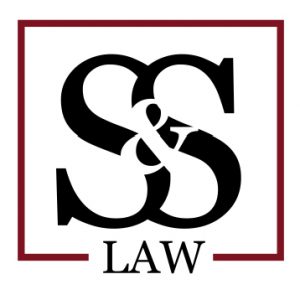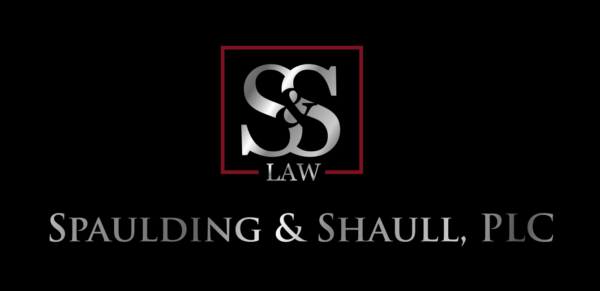Bad Faith
Process & Tips
Recent workers’ compensation law changes have resulted in substantially less benefits available to injured workers in Iowa. Workers’ compensation insurance companies feel emboldened by the new laws and are committing bad faith with much more frequency. Our firm stands up to this bad behavior by insurance companies.
A workers’ compensation claim is a formal request that an employer (or the employer’s insurance company) pay for the necessary benefits and medical treatment resulting from an injury that occurred in the course of and arose out of the employment.
A bad faith claim is a separate claim against an insurance company that fails to obey Iowa’s workers’ compensation laws regarding the benefits and medical treatment an injured worker is entitled to.
- Delaying sending payment to the insured
- “Lowballing”, in which an insurer attempts to underpay on a claim
- Outright refusal to pay a legitimate claim
- Failure to protect the insured from excess policy judgments
The compensation amount for each claim depends on many factors, such as:
- Extent of your injuries, and whether or not the injuries are permanent
- Extent of the medical treatment needed
- Cost of medical treatment needed
- Amount of work and income lost due to injuries
Considering these factors, the exact worth of each case can vary a great deal, but Spaulding & Shaull is prepared to develop your claim to try to obtain the maximum recovery possible for the injury or injuries you’ve suffered.
Please fill out our short contact form, or call our office if you have questions, need advice, or would like to set up a free consultation. We will respond as soon as possible to discuss how we can help with your case.
We take cases on a contingency fee basis, which means that our attorney fee is a percentage of the recovery or judgment from your case. No fee is owed to us if no recovery or judgement is obtained. If administrative costs come up during your case, we advance the case expenses. At the conclusion of your case, Spaulding & Shaull will be reimbursed for those advanced case expenses.
What Constitutes “Bad Faith”?
To establish a first-party bad-faith claim against a workers’ compensation insurer, the plaintiff must show “(1) that the insurer had no reasonable basis for denying benefits under the policy and, (2) the insurer knew, or had reason to know, that its denial was without basis’” McIlravy v. N. River Ins. Co., 653 N.W.2d 323, 329 (Iowa 2002). “A claim is ‘fairly debatable’ when it is open to dispute on any logical basis.” Bellville v. Farm Bureau Mut. Ins. Co., 702 N.W.2d 468, 473 (Iowa 2005)
The Advent of the Law
The Iowa Supreme Court first recognized the tort of first-party bad faith in Dolan v. AID Insurance Co., 431 N.W.2d 790 (Iowa 1988). The first case in Iowa to specifically recognize workers’ compensation insurance bad faith was Boylan v. American Motorists Ins. Co., 489 N.W.2d 742 (Iowa 1992). The Court held that there was “an affirmative duty for workers’ compensation insurance carriers to act reasonably when a claim is filed.” Id. at 744
Boylan was key for recognizing that the administrative remedy of penalty benefits within the workers’ compensation arena was insufficient to protect injured workers from abuses within that system. Since Boylan, the Court has advanced the law towards protecting injured workers from abuses by workers’ compensation insurance carriers. Thornton v. Am. Interstate Co., 897 N.W.2d 445 (Iowa 2017); McIlravy v. N. River Ins. Co., 653 N.W.2d 323 (Iowa 2002); Gibson v. ITT Hartford Ins. Co., 621 N.W.2d 388 (Iowa 2001); Kiner v. Reliance Ins., 463 N.W.2d 9 (Iowa 1990).
The “Affirmative Duty” to Investigate
Workers’ compensation insurance companies have an “affirmative duty” under Iowa law to comply with the statutory provisions of the Iowa Workers’ Compensation Act—Chapter 85 of the Code. It is now well-established law in Iowa that a workers’ compensation carrier has an affirmative duty to investigate (and conduct a continuing investigation) into a worker’s injury claims. Gibson v. ITT Hartford Ins. Co., 621 N.W.2d 388 (Iowa 2001)
“The insurance carrier’s duty to act reasonably includes the duty to fully and fairly investigate a claim rather than to stand back and deny a claim simply because they wish to deny it….It is a continuing duty that requires the carrier to reassess its position on the claim whenever additional information becomes available.” Pickering v. Squealer Feeds, 2000 WL 961920, *9 (Iowa Ct. App. 2000); Christensen v. Snap-On Tools Corp., 554 N.W.2d 254 (Iowa 1996).
Medical Treatment and Bad Faith
Iowa Code § 85.27(4) provides in relevant part that “the employer is obliged to furnish reasonable services and supplies to treat an employee.” That the employer is required to provide an injured employee with reasonable medical care under Iowa law is unquestioned. The question of whether an insurance carrier (on behalf of its insured-employer) can be subject to bad faith liability for its unreasonable denial or delay in providing care is more interesting.
As addressed in Gibson, to be liable for common law bad faith in Iowa, a workers’ compensation insurer must have “denied” the employee benefits under the policy. In Thornton v. American Interstate Insurance Co., the Court concluded that the requisite “denial” included when an insurer unreasonably delayed delivery of necessary medical equipment. 897 N.W.2d 445, 465 (Iowa 2017)
In reaching their decision, the Thornton Court served reminder of the Boylan holding that bad-faith claims are intended to supplement the workers’ compensation system, noting:
[I]t is unlikely that the legislature intended the penalty provision in section 86.13 to be the sole remedy for all types of wrongful conduct by carriers with respect to administration of workers’ compensation benefits. By its terms, it applies only to delay in commencement or termination of benefits. It contemplates negligent conduct rather than the willful or reckless acts that are required to establish a cause of action under Dolan. In addition, no remedy is provided under section 86.13 for delay or failure to pay medical benefits. Boylan, 489 N.W.2d at 744 (emphasis added)
Based on the foregoing, the Court in Thornton confirmed that common law bad-faith tort claims do not fall within the Iowa Workers’ Compensation Commissioner’s exclusive jurisdiction, and therefore held that district courts have subject-matter jurisdiction over bad-faith claims alleging unreasonable delay in providing medical benefits.
Punitive Damages
Because workers’ compensation bad faith is a district court tort, the nature of the claim avails the injured worker to potentially-substantial non-economic damages (i.e. mental pain and suffering and emotional distress) that are not available before the Iowa Industrial Commissioner under the traditional workers’ compensation setting. It is due to this significantly-increased exposure of liability that insurance carriers are especially intimidated by claims of bad faith being brought against their companies.
Regarding these damages, the Gibson court also held that the denial of benefits and failure to abide by the statutory terms of Iowa Code Chapter 85 was “sufficient to constitute willful and wanton conduct for punitive damages.” Such punitive damages are designed to punish the defendant insurance carrier for their past wrong-doing with the hopes of preventing such action in the future by the particular Defendant-insurance carrier involved in the lawsuit, as well as other insurance companies—by sending a message that unreasonable claim adjustment behavior will not be tolerated.
The case of Zimmer v. Travelers Ins. Co. illustrates what elements of damage an Iowa jury can consider in a bad faith case. 521 F. Supp. 2d 910 (S.D. Iowa 2007) There, the jury awarded $500,000 for past loss of function of body or mind, $3,000,000 for future loss of function of body or mind, $1,500,000 for past emotional distress, and $3,000,000 for future emotional distress. In addition, the jury in Zimmer punished the defendants for their unreasonable actions by awarding a total of $3,000,000 in punitive damages against them.
Not sure if you have a bad faith claim?
Leave us a note and we will get back to you for a free consultation.

